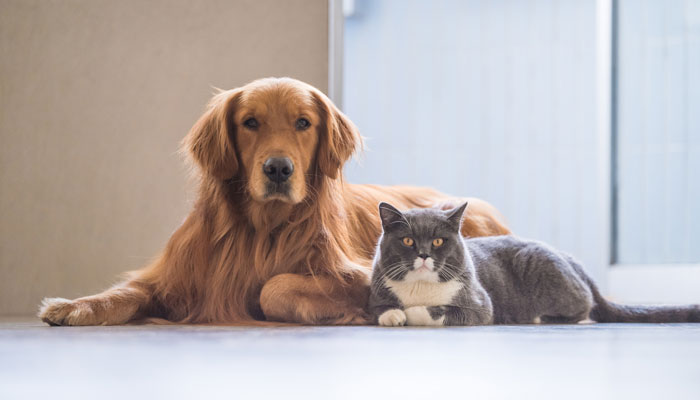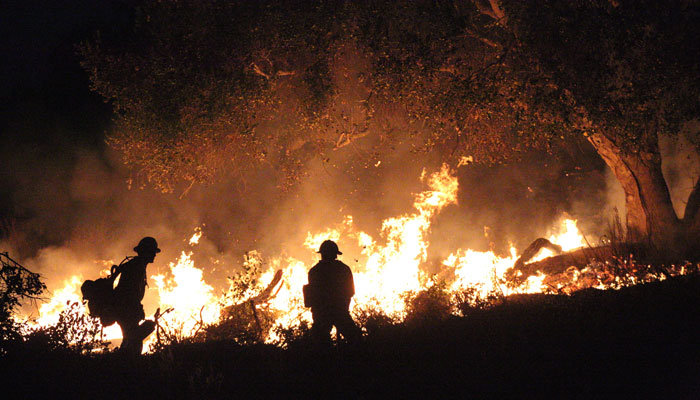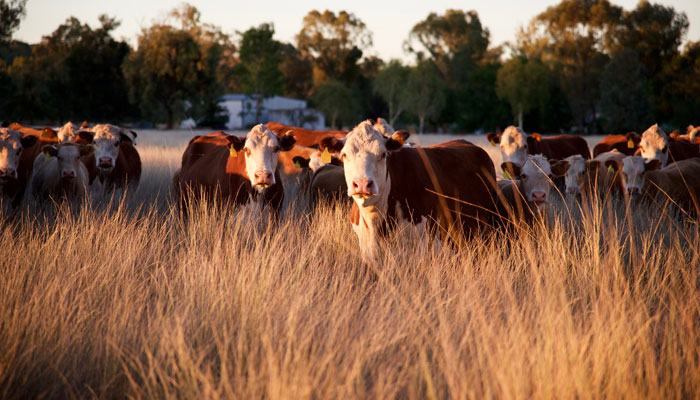Animal welfare groups rescued thousands of pets and livestock from the devastating wildfires that swept across California last November, with firefighters and cowboys helping bring animals to safety as the blazes took hold.

Beloved: The loss of a pet to bushfire takes a psychological toll on owners.
The events in the US are a prompt for Australians living in high-risk areas to get ready as our own peak bushfire season approaches – and it’s a stark reminder to those who look after animals to think about a plan of action should fires approach.
Macquarie psychologist Dr Mel Taylor has been exploring better ways to encourage animal owners to prepare and respond to bushfire emergencies, preventing last-minute panic and distress.
Bushfires are increasing in Australia and as climate change sets in, she says more work is needed to improve the ways we respond to these events across all sectors of the community.
The focus after fires is all around loss of property and, of course, around the loss of human life. But there’s not much talk around other lives lost.
For the estimated 63 per cent of Australian households with pets, and the significant number of animal-related businesses including the nation’s farms, the presence of animals adds complexity to owners’ planning for emergencies such as fire or flood.
Animal loss a psychological blow
Animal loss a psychological blow
Fires in the Springwood and Mt Victoria in Blue Mountains during 2013, the worst in NSW since the 1960s, destroyed 203 houses, around 12,700 hectares of land and the NSW Coronerestimated the cost at over $200 million.

Unpredictable: Even those with a plan don't necessarily know what to expect when a bushfire hits.
But there was another toll: at least 100 pets, probably far more, perished in the fires; and the psychological toll on their owners was significant.
“The loss of a pet can be a massive psychological blow to people, especially if they’ve already lost a lot and have been through a very frightening situation,” says Taylor.
Taylor is an organisational psychologist and senior lecturer in Macquarie University’s Department of Psychology. She is also a project leader in the Bushfire and Natural Hazards Co-operative Research Centre. Her research looks at the way we prepare for, respond to, and recover from emergencies such as natural hazards.
She recently completed a three-year project on best practice in animal emergency management, and she actively contributes to a community-led initiative in the Blue Mountains that is encouraging animal owners to actively prepare and plan for their animals in bushfire, and other, emergencies.
The Blue Mountains project recently won a highly commended award in the NSW Resilient Australia Awards.
It’s quite different when you actually smell the smoke, see the fire, and have that sense of urgency.
Australia has one of the world’s highest rates of pet ownership, she says, and looking after pets can be a huge stress for their owners during disasters such as bushfires.
Post-fire stresses can include having to deal with injury to animals and grief and guilt over lost pets, Taylor says.
“The focus after fires is all around loss of property and, of course, around the loss of human life,” she says. “But there’s not much talk around other lives lost.”
In the tragic aftermath of bushfires, the sense of loss can be overwhelming, she adds.
“Many people feel a sense of shame around their intense grief over losing their dog for example when there’s been such a magnitude of loss to a community. But research shows that grief over the death of a pet can equate to that over the loss of a sibling.”
A memorial to animals lost in the 2013 bushfires sits outside a Winmalee veterinary hospital, where vet Dr Chris Blair tended to more than 350 injured animals free of charge.
The community response and support around loss of pets in this situation has had a great healing effect, Taylor says.
Managing in the thick of disaster
Taylor is working with a team that is helping people better prepare to manage animals during disasters.

Livestock v 'love-stock': Large animals can be as important to people as their domestic pets.
“The key is actually around managing people, and making sure they are adequately prepared,” she says.
Even those who have planned their response don't necessarily know what to expect when a bushfire hits. “It’s quite different when you actually smell the smoke, see the fire, and have that sense of urgency.”
We refer to large animals on small acreages as love-stock, not livestock, because they really do have an important place in people’s hearts.
Animals often react in unexpected ways too, she adds. “Cats are great at scarpering whenever there's a change, so they could throw plans out.”
Having a plan for pets – from resident goats and chickens, to your child’s pet fish – can take the pressure off decision-making in emergencies.
“Many people who live in bushfire-prone places like the Blue Mountains can spend a lot of their time commuting to work so they are not necessarily going to be able to get pets organised in an emergency,” she says.
Her work with Blue Mountains community group Blue ARC Animal Ready Community led to the development of resources and guidance for local residents which include having a plan about where to take animals and how to transport them, and making contact with neighbours and other pet-owners in order to help each other if disaster strikes.
Even loss of large stock animals can be devastating, Taylor says. “We refer to large animals on small acreages as love-stock, not livestock, because they really do have an important place in people’s hearts.
“This kind of work is like preventative health – it costs us far less to put the time and effort in upfront, and it can have huge long-term benefits.”
Dr Mel Taylor is Senior Lecturer in Organisational Psychology, Department of Psychology



